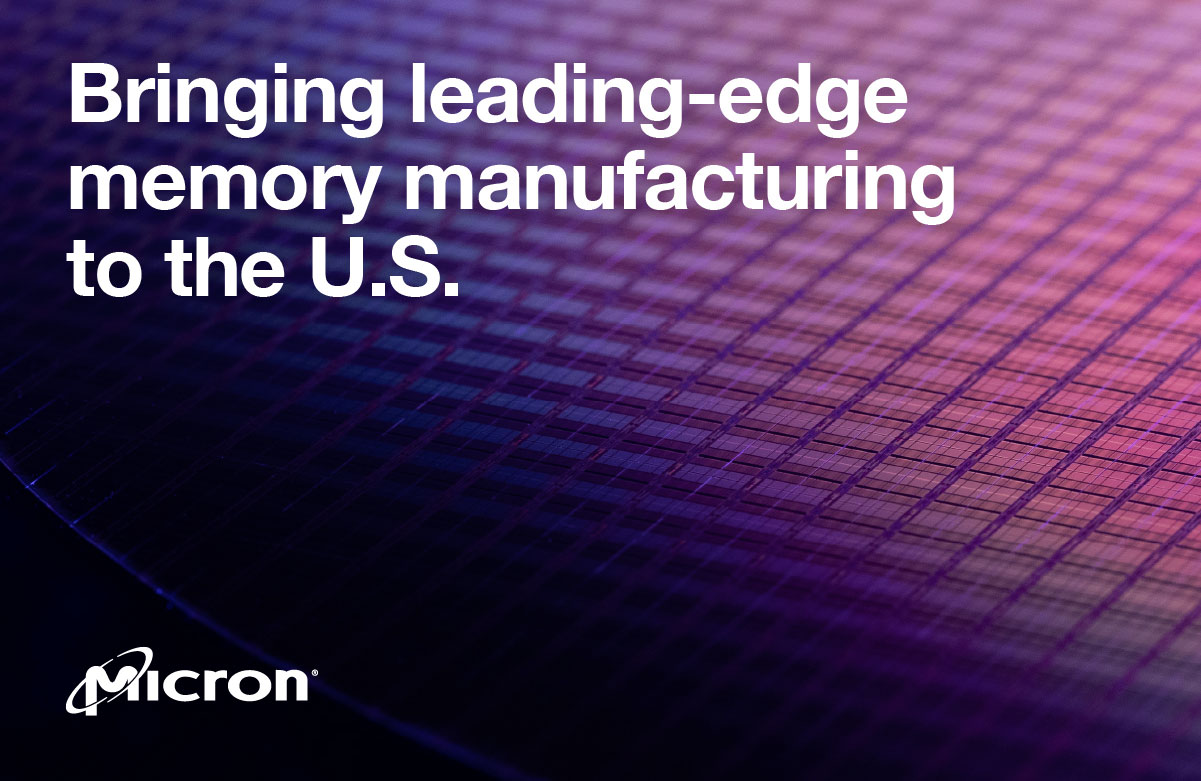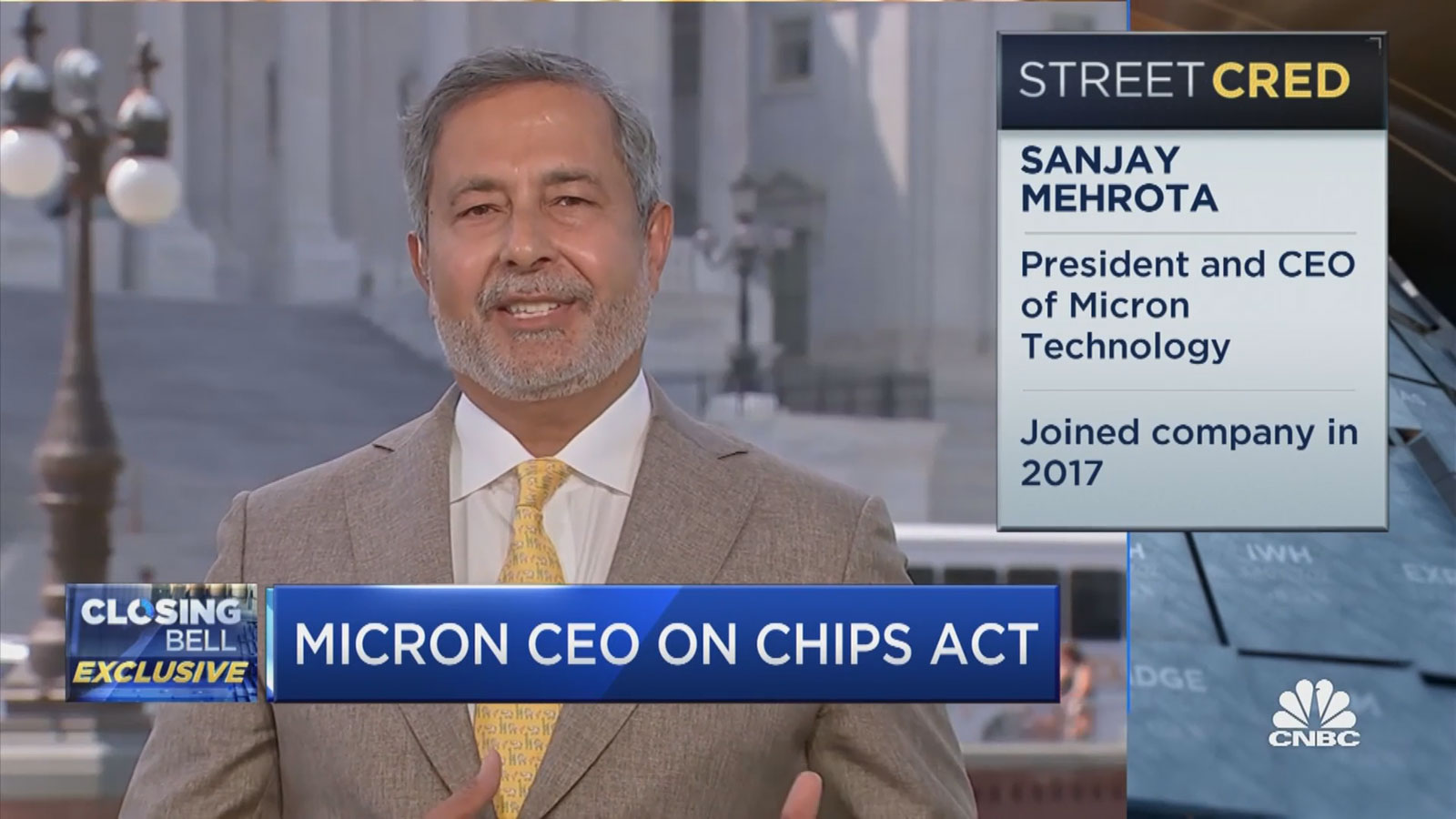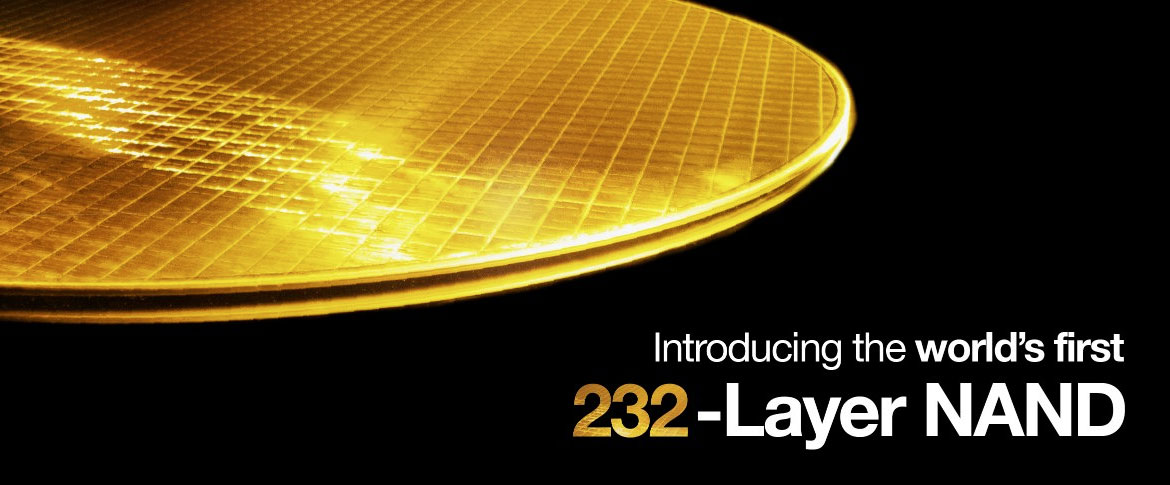Micron Announces Plan for Advanced U.S. Memory Chip Fab
Decision came quickly after passing of the CHIPS Act.
Memory and storage specialist Micron has announced that it will bring “leading-edge memory manufacturing” to the U.S. The move doesn’t come as a big surprise, as the firm’s CEO, Sanjay Mehrotra, telegraphed management’s intent to make this investment earlier this month. At the time, Mehrotra asserted that Micron’s decision would hinge on the passing of the Chips and Science Act. In a bipartisan vote on Thursday, the U.S. Senate passed the Act worth $76 billion in U.S. chip manufacturing subsidies.
In its press release about its newly crystallized U.S. manufacturing plans, Micron thanked the government for passing the funding legislation and agreed with the Act’s backers that it is an important initiative to ensure advanced semiconductor manufacturing prospers in the U.S. for years to come. “This legislation will bring leading-edge semiconductor manufacturing to the U.S., creating tens of thousands of jobs and tens of billions of dollars of new investments,” opined Micron. However, that isn’t saying all these jobs and investments will come from Micron’s expansion. Remember, Intel is another U.S. firm keen to qualify for a slice of this funding.
Moving along to Micron-specific business implications, the firm says that only 2% of global memory supply currently emanates from U.S. semiconductor producers, and all of that is from Micron. It went on to pledge that U.S. domestic memory production would grow “significantly” in the years ahead thanks to the passing of the Chips and Science Act. It went on to say that these investments would be significant to both the economy and national security. Sadly, no specific investment targets or locations were discussed, but the firm said it will share some plans “in the coming weeks.”
For some possible insight into Micron’s U.S. investment plans, CNBC recently highlighted unconfirmed reports of Micron considering building a new advanced chip fab in Boise, Idaho – which would be close to Micron’s headquarters. The Micron CEO would only admit to considering multiple sites in various states across the U.S., including Boise, where it currently employs 7,000 people. Companies will be weighing both federal and state support and location benefits.
Micron recently announced that it was first to market with a 232-layer TLC NAND chip package. It isn’t all about capacity, though, as Micron claims these NAND chips offer up to 100% improvements in performance over the previous gen, largely due to a new six-plane architecture.
Get Tom's Hardware's best news and in-depth reviews, straight to your inbox.

Mark Tyson is a news editor at Tom's Hardware. He enjoys covering the full breadth of PC tech; from business and semiconductor design to products approaching the edge of reason.
-
LuxZg While I don't like when governments give away billions to already rich people and companies, I do believe this will be good for even global economy. And I also hope similar is done in EU via 43 billion EU Chips act(s). Those two together should ensure that we have distributed chips manufacturing once again, instead of 90% of everything relying on TSMC. I have nothing against TSMC, they do great job and have made huge progress, but as recent history showed (again) putting all eggs in one basket is unwise. And at times like these it also makes it very expensive proposition. TSMC decides to raise prices 20% singlehandedly, and there's no way stopping them. But again, too bad this wasn't possible without giving away 120 billion to the likes of Intel & TSMC that are already swimming in cash.Reply


